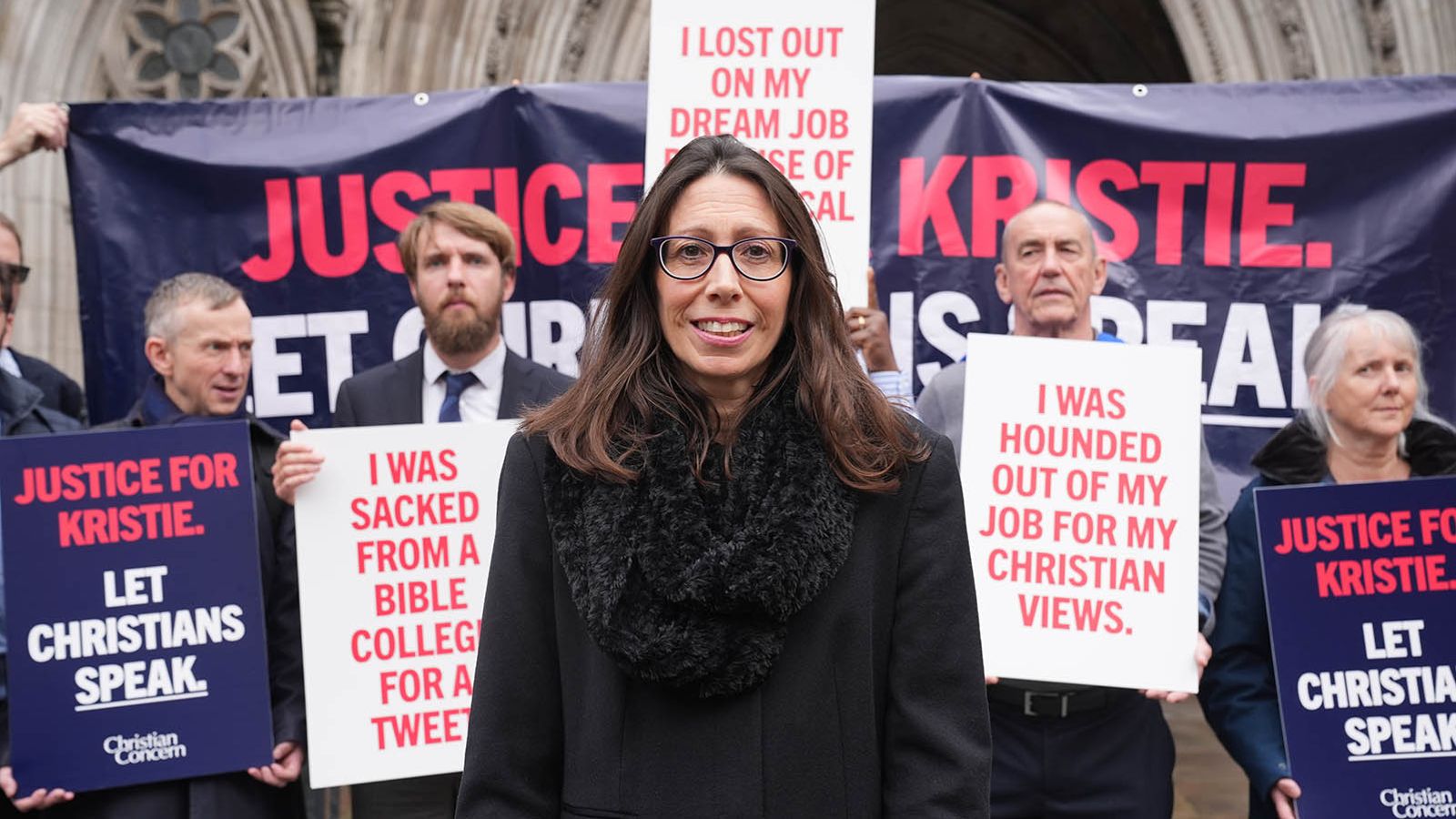U.K News
Christian school worker sacked over LGBT+ posts wins court appeal

A Victory for Freedom of Expression: The Kristie Higgs Case
Introduction to the Case
In a significant ruling for freedom of speech and religious expression, Kristie Higgs, a Christian school worker, won a landmark case in the UK Court of Appeal. Mrs. Higgs, a pastoral administrator and work experience manager at Farmor’s School in Gloucestershire, was dismissed in 2019 after sharing Facebook posts criticizing the inclusion of LGBT+ relationships in primary school teachings. Her case has sparked debates about the balance between personal beliefs, workplace policies, and the right to express opinions outside of work. The Court of Appeal ruled in her favor, overturning a previous decision to send the case back to an employment tribunal. This victory has been hailed as a triumph for Christians and individuals who wish to express their beliefs without fear of reprisal from employers.
The Background of the Dismissal
Mrs. Higgs was sacked from her role at Farmor’s School after she shared and commented on social media posts expressing concerns about the teaching of LGBT+ relationships in primary schools. The posts were related to her son’s Church of England primary school, which had introduced a series of books to educators to align with the Equality Act. While the school denied that her dismissal was due to her religious beliefs, they cited the language used in her posts as "intemperate" and "insulting," claiming it could damage the school’s reputation. Mrs. Higgs maintained that she was speaking as a parent and a concerned member of society, not in her professional capacity.
The Legal Battle and Its Outcome
Mrs. Higgs challenged the Employment Appeal Tribunal’s decision to remit her case for a fresh hearing, arguing that it was unnecessary. In a unanimous ruling, three judges at the Court of Appeal agreed with her, stating that the decision to send the case back was "unlawfully discriminatory." Lord Justice Underhill, who presided over the case, emphasized that Mrs. Higgs’ posts were primarily quotes from other sources and reflected her objections to government policy on sex education in primary schools. He also noted that there was no evidence of her expressing discriminatory attitudes at work or treating students unfairly. The ruling effectively upheld her right to express her beliefs outside of work without facing professional consequences.
The Broader Implications of the Case
The ruling in favor of Kristie Higgs has far-reaching implications for freedom of expression and religious liberty in the workplace. Mrs. Higgs’ victory sends a clear message that employees should not face disciplinary action for expressing lawful views on social media, provided those views are not expressed in a work context and do not directly harm the employer. The case also highlights the delicate balance between workplace policies and personal freedoms. While employers have a right to protect their reputation, they must also respect the rights of employees to express their beliefs outside of work.
A Triumph for Religious Freedom
Mrs. Higgs’ case is seen by many as a significant win for religious freedom. Outside the Royal Courts of Justice, she stated, "Christians have the right to express their beliefs on social media and at other non-work-related settings without fear of being punished by their employer." Her words resonate with many who believe that religious beliefs should not be confined to private spaces but can be expressed freely in public discourse. The ruling also serves as a reminder that employers must act with caution when addressing employees’ personal expressions, ensuring that they do not unfairly penalize individuals for holding or expressing lawful views.
Looking Ahead: The Future of Free Expression in the Workplace
The Kristie Higgs case sets an important precedent for future cases involving free expression and workplace policies. It underscores the need for employers to differentiate between personal and professional conduct when addressing issues related to social media use. As the UK continues to grapple with complex issues of identity, diversity, and inclusion, this case serves as a timely reminder of the importance of balancing these values with the rights of individuals to express their beliefs. For Mrs. Higgs and her supporters, the ruling is a cause for celebration, but it also marks the beginning of a broader conversation about the boundaries of free speech in an increasingly polarized society.


















